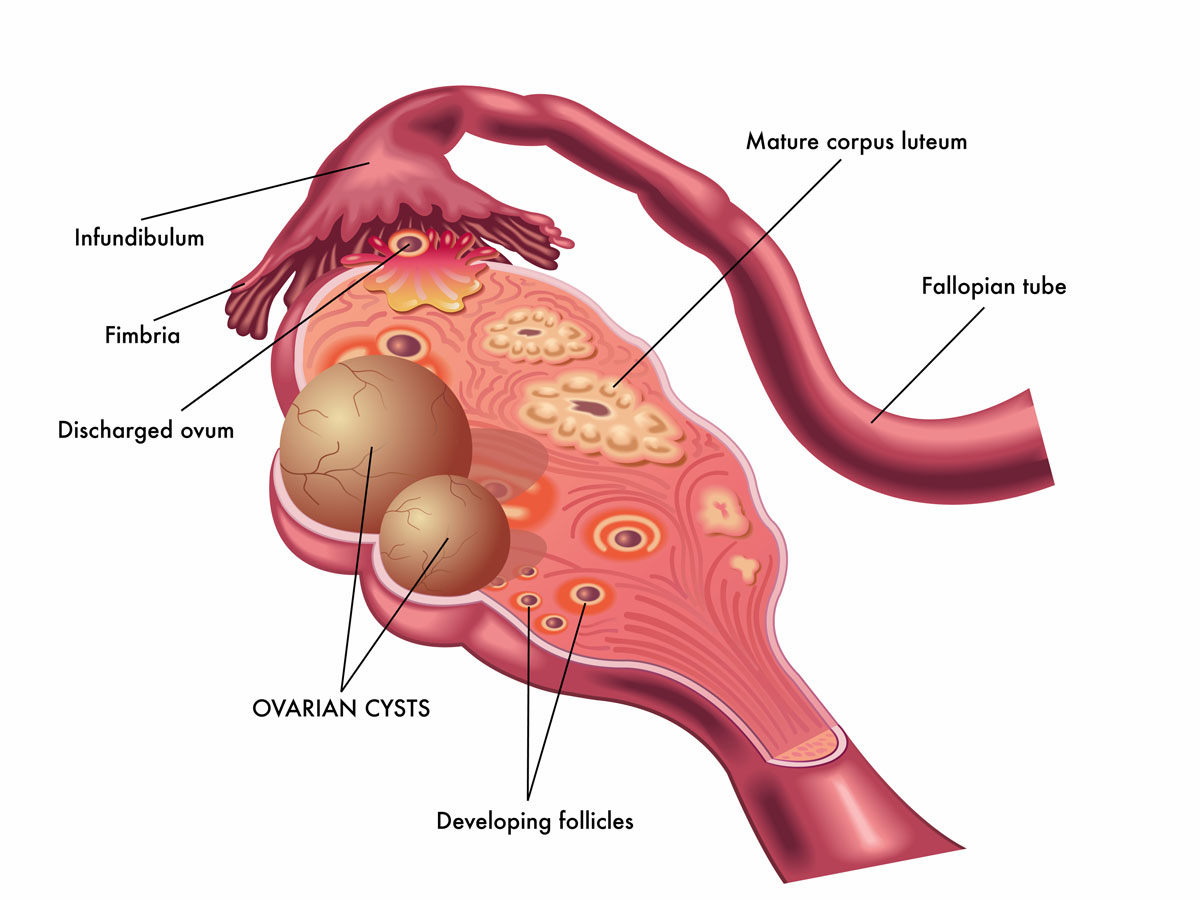The most common type of ovarian cyst is a physiological functional cyst.
These are normal, often part of your menstrual cycle and require no treatment.
The two functional types are:
- Follicle cysts: These often resolve in 1 to 3 months
- Persistant corpus luteum cysts: Most of these cysts resolve after a few weeks. They may bleed or twist the ovary and cause pain. Some drugs used to cause ovulation, such as Clomiphene can raise the risk of developing these cysts

Other types of ovarian cysts are:
- Endometriomas: These cysts form in women who have endometriosis
- Cystadenomas: These cysts grow from cells on the outer surface of the ovary. They may enlarge and cause pain
- Dermoid cysts: These cysts contain many types of cells. They may be filled with hair, teeth, and other tissue. They can become large and cause pain
- Polycystic ovaries: These are not cysts despite the name, please refer to our polycystic ovarian syndrome page for more info
- Ovarian cancer: Although most ovarian cysts are benign/harmless, ovarian cancer can present as an ovarian cyst. Therefore, any woman with an ovarian cyst should see a specialist for further evaluation
Common symptoms of ovarian cysts
Most ovarian cysts don’t cause symptoms, and are chance findings. Some symptoms are:
- Pain in the abdomen or pelvis
- Problems passing urine completely
- Pain during sex
- Weight gain
- Pain during your period
- Abnormal bleeding
- Nausea or vomiting
You should seek urgent attention if you have:
- Sudden, severe abdominal pain
- Pain with fever and vomiting
- Faintness, dizziness, or weakness
Investigations for ovarian cysts
- An ultrasound
- A pregnancy test
- CA 125 blood test: This tumour marker test is done to find out if the cyst may be cancerous. The level of CA-125 is higher with ovarian cancer, but can also be high in other non cancerous conditions like endometriosis and fibroids
Treatment
Conservative: Depending on the type of cyst and your age, a follow up ultrasound may be arranged in 6 weeks to 3 months to see if the cyst has changed. Many cysts may have disappeared by this time.
Surgery: This may be necessary if the cyst is causing pain, is persistant or has concerning features. Your specialist will discuss this with you.
Contraceptive pills: If you continue forming functional cysts, your specialist may prescribe the contraceptive pill to stop you from ovulating, and preventing future cyst formation.

